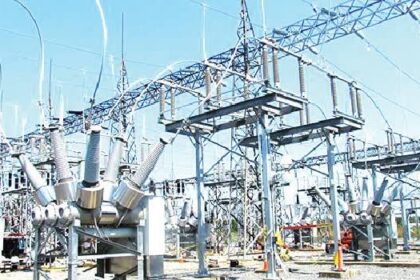The African Democratic Congress (ADC) has rejected the National Assembly’s plan to amend the Electoral Act and move the 2027 general elections to November 2026. The party warned that such a shift could destabilize governance and derail Nigeria’s long-term development goals.
In a statement issued on Tuesday by its National Publicity Secretary, Bolaji Abdullahi, the ADC cautioned that holding elections earlier than scheduled would shorten the effective period for governance and push the country into a constant campaign cycle, undermining policy implementation and development planning.
The National Assembly had on Monday initiated moves to alter the 2022 Electoral Act, proposing that the presidential and governorship elections be conducted in November 2026, six months earlier than the traditional February or March timeline. Lawmakers argued that the amendment would allow sufficient time to resolve all pre- and post-election disputes before the May 29, 2027, handover date.
However, the proposal has drawn mixed reactions. While some Nigerians see it as a step toward improving electoral credibility, others believe it could be a veiled attempt to extend President Bola Tinubu’s influence and disrupt the political calendar.
ADC raises governance concerns
The ADC described the proposal as “politically motivated” and urged lawmakers to focus on strengthening democratic institutions instead of tinkering with the electoral calendar.
Abdullahi stated, “While we understand the intent to provide more time for election petitions before inaugurations, this amendment could create more problems than it solves. Cutting the current political calendar by six months risks turning Nigeria into a state of perpetual electioneering, where governance takes a back seat to politics.”
He added that if the elections were held in November 2026, campaigns would likely begin by 2025, leaving only two years for effective governance. “By that time, the focus of public officials will shift from performance to political positioning,” he said. “Policies will stall, projects will be abandoned, and national attention will drift toward 2026 instead of 2027.”
‘Power Over People’
Abdullahi also referenced the current administration, warning that Nigeria’s governance culture already suffers from excessive political obsession.
“Even without any amendment, the ruling APC has shown what happens when leaders prioritize power over the welfare of citizens. If elections are moved backward, this unhealthy trend will only worsen. Governance will suffer while politics dominates national life,” he stated.
Call for true electoral reform
The ADC urged lawmakers to abandon the proposal and instead pursue reforms that ensure credible elections, faster petition resolution, and stronger institutions.
“If the goal is to conclude election disputes before inaugurations, the solution is not to shorten tenures or rush the process,” the party said. “We should strengthen the judiciary, INEC, and electoral laws with strict timelines and efficient adjudication systems.”
The statement cited examples from other democracies, such as Kenya, Indonesia, and Ghana, where courts handle election petitions within fixed timeframes ranging from two to six weeks. According to the ADC, such efficiency ensures justice without altering the electoral calendar.
Institutional Efficiency, Not Calendar Change
“Changing the election date without addressing the real weaknesses of our electoral system will yield no positive results,” the statement concluded. “Nigeria needs institutional efficiency, not endless electioneering. The people expect governance, not campaigns that run for two years and governance that lasts for two.”









